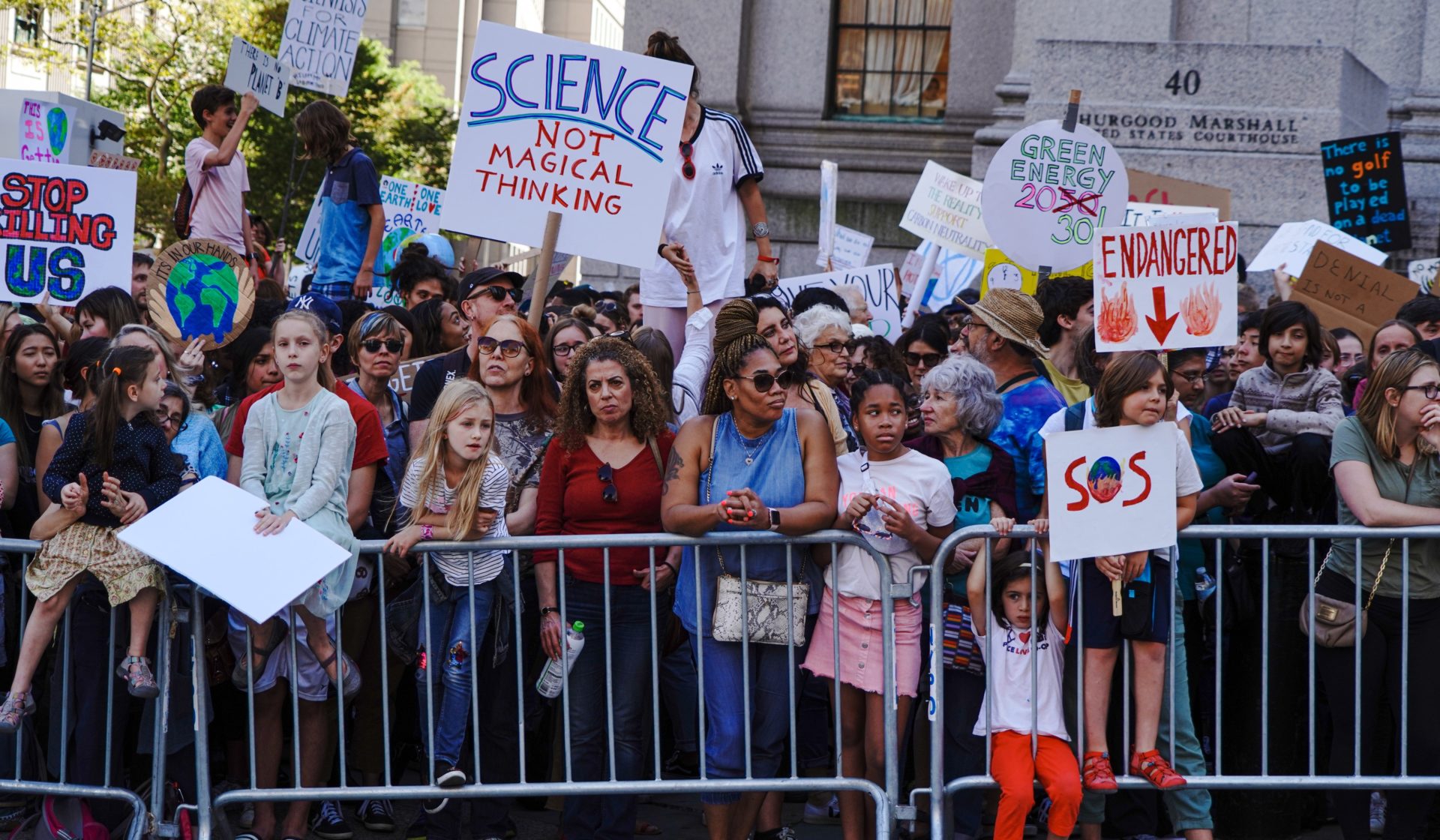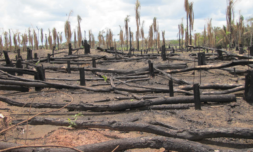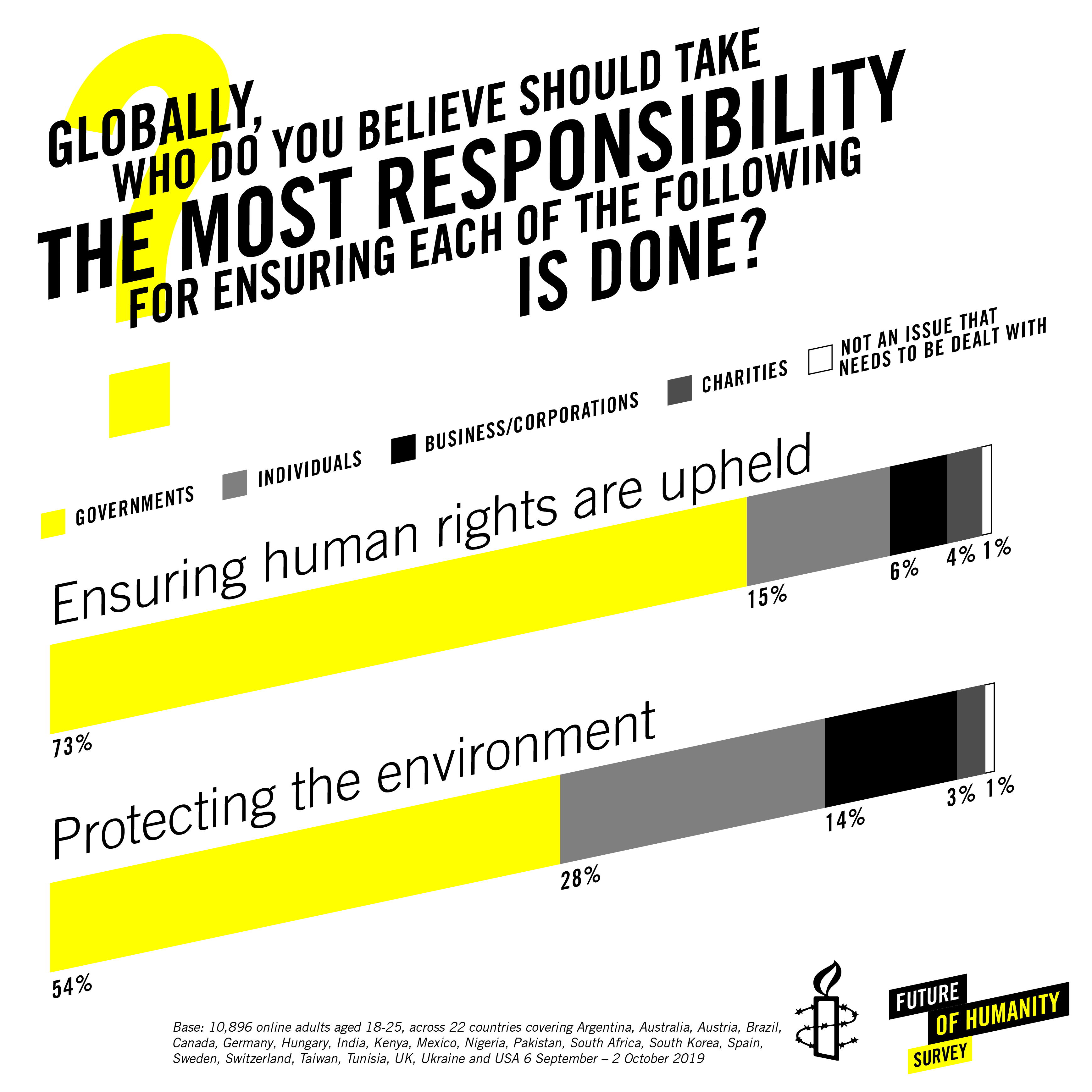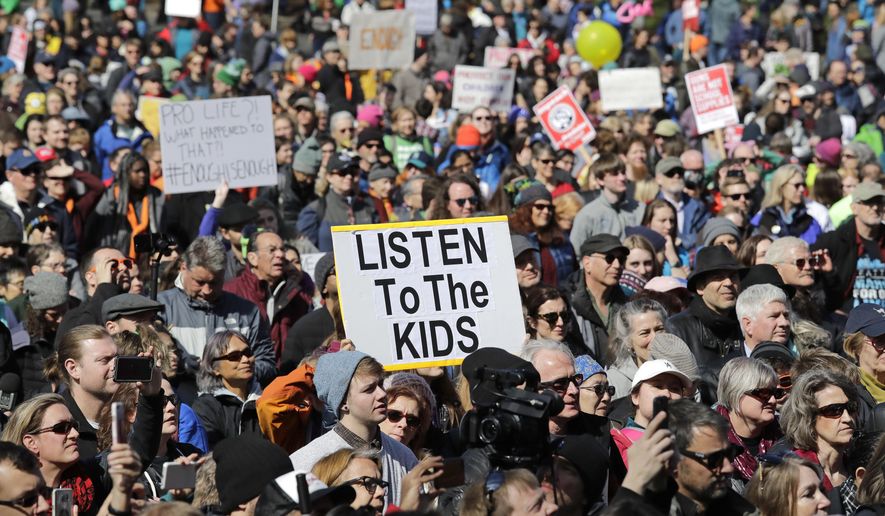A ground-breaking crowdfunded case demanding that 33 countries make more ambitious emissions cuts is being led by a group of Portuguese youth activists aged eight to 21.
It’s no secret that Gen Z is on a radical quest to save the planet. Growing up amid a climate crisis that takes on an increasing sense of urgency every second, 41% of the demographic consider global warming the most important issue facing the world today.
No doubt inspired by Greta Thunberg’s UN speech last year – emblematic of the way her generation is responding to the state of the earth – these under-25 activists have staged hunger strikes; they’ve formed organisations like Fridays for Future and movements like Zero Hour to help young people take action.
These kids care. A lot. And now, they’re suing multiple European states both for the emissions within their borders and also for the impact their companies and consumers have had across the globe through trade, fossil-fuel extraction, and outsourcing.
Heeding this plea for change with unstoppable force are a group of four Portuguese children and two young adults aged eight to 21, some of whose homes were destroyed when wildfires ripped through the central Leiria region in 2017. The ground-breaking crowdfunded case is the first of its kind and centres on the threat posed by disasters such as these regarding the physical and mental wellbeing of Gen Z.
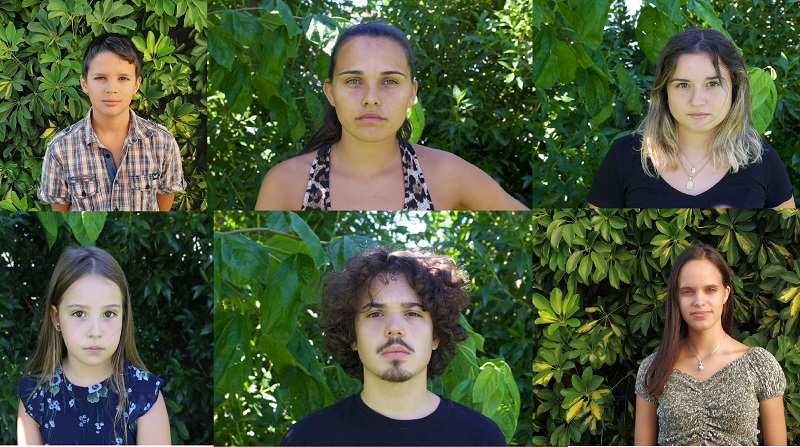
Also a product of intense eco-anxiety that’s associated with ‘a chronic fear of environmental doom’ (American Psychological Association), their impulse to act is borne out of dire need – not idealism as some have tried to argue. It’s a harsh wake-up call for world leaders that they must take far more divisive measures to confront the climate emergency or risk betraying younger generations further.
‘If the leaders of the world are willing to listen carefully, they will notice that Generation Z are not asking for small tweaks, says Kumi Naidoo, secretary general of Amnesty International and administrator of The New Future of Humanity survey. ‘Young people are looking for fundamental changes in the way the world works and if the events of 2019 teach us anything, it is that younger generations deserve a seat at the table when it comes to decisions about them.’
Despite being initiated on the back of the devastating forest fires three years ago, the case is only now being filed, in the wake of Portugal’s hottest July in 90 years – a trend set to worsen on the current path of approximately 3C of warming above pre-industrial levels.
The campaigners are asking the standard-setting court to issue binding orders on 33 states within the EU, as well as Ukraine, Switzerland, Turkey, Russia, Norway and the UK, hoping to prevent discrimination against young voices and protect their fundamental right to life.









